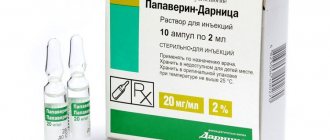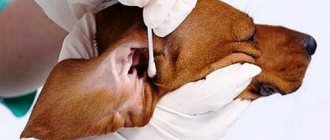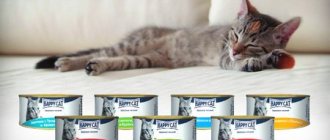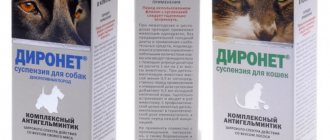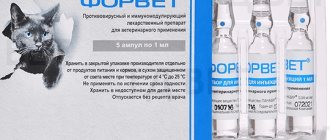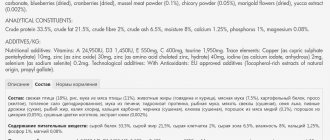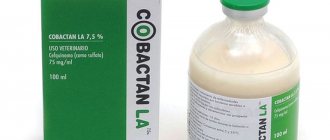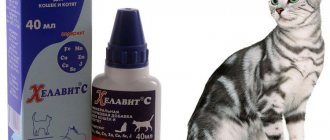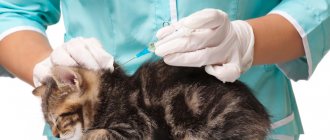In veterinary practice, antiviral drugs for cats are often used, which can be produced either in injections or in tablets. Medicines are designed to fight a viral infection and promote a speedy recovery of the animal. However, each medicine has an individual degree of effectiveness, a spectrum of effects and belongs to different types of chemical compounds. Antimicrobial medications intended for humans can be used to treat cats and other pets. But the appointment, in any case, must be made by a specialist.
Why is it prescribed?
An antiviral drug for cats helps to quickly relieve dangerous symptoms of bacterial, viral and infectious pathologies of various etiologies. Veterinarians have developed extensive practice using such products and often recommend them for the following diseases:
- Aujeszky's disease;
- coronavirus infections;
- adenoviruses;
- viral leukemia;
- leptospirosis;
- panleukopenia.
Antiviral drugs for cats are usually not prescribed alone, but are used in complex therapy. Most often, medications are combined with specific medications used to relieve symptoms. These can be hyperimmune serums and vaccines. These agents directly affect the growth and development of viruses.
Antiviral drugs for animals
Antimicrobial and antiviral drugs help relieve symptoms of dangerous infectious, bacterial and viral diseases of various origins and etiologies. In veterinary practice, this category of medications is used to treat leptospirosis, Aujeszky’s disease, coronavirus infections, adenovirosis, panleukopenia, and feline viral leukemia.
Antiviral drugs can be prescribed by veterinarians in combination with other symptomatic drugs, specific agents - vaccines, hyperimmune serums, which directly affect the reproduction of viruses.
recommended articles:
- Pneumonia in cats
- Sinulox for cats and dogs
Antiviral drugs for cats should be prescribed by a veterinarian
According to the mechanism of action, antiviral drugs for cats can selectively inhibit individual stages of the reproduction of the viral particles themselves or have a complete effect on various cellular structures of pathogenic microorganisms that take part in the reproductive processes of dangerous bacteria and viruses.
Important! Antiviral agents are also presented in the form of biologically active substances: interferons, interferon inducers or their preparations.
Interferons are substances with universal antiviral action. The mechanism of action is based on disruption of viral reproduction, regardless of its genetic material. They take part in blocking specific proteins of parasites.
Interferon inducers (interferonogens) are natural substances or components that are obtained synthetically. Capable of inducing the production of the protective protein interferon in the body of warm-blooded animals. They have a pronounced antiviral, immunocorrective, antihumorogenic effect.
Antiviral drugs for cats can be prescribed for preventive and therapeutic purposes in the form of tablets, drops, suspensions, injections. For external treatment, antibacterial universal creams, liniments, ointments, and gels are available for sale.
Impact spectrum
All antiviral drugs for cats have a different mechanism of action. Some affect the reproduction process of microorganisms directly, others affect cellular processes responsible for the development of dangerous cells.
Antiviral medications used in veterinary practice can also be represented by biologically active substances:
- interferon inducers;
- interferon;
- interferon-based drugs.
Interferon is a universal substance that has a detrimental effect on the virus envelope. They can be either natural or synthetically produced. If drugs based on them are administered, the animal’s body begins to actively produce its own interferon protein, which intensively fights the disease. As a result, a pronounced antiviral, antihumorogenic and immunocorrective reaction can be expected.
Veterinarians often prescribe antiviral drugs for cats and for prevention purposes. In any case, there are a lot of similar medications. They are presented in the form:
- tablets;
- injections;
- suspensions;
- creams;
- gels;
- ointments.
Depending on the severity of the disease and its type, the necessary remedy should be selected by a veterinarian.
Need for application
Antiviral drugs for cats have found their wide use in the treatment of viral-bacterial pathologies of a respiratory nature, as well as in the treatment of:
- gastrointestinal diseases;
- urinary system infections;
- eye diseases;
- skin problems;
- damage to soft tissues.
This group of drugs often has a wide range of effects, so they can be used in combination for the following problems;
- infection with worms;
- allergic manifestations;
- cold symptoms;
- for chronic liver and kidney failure.
Many veterinarians prescribe antiviral drugs for cats (injections) after surgery to avoid complications caused by the active reproduction of pathogenic microorganisms.
For inflammation of the genitourinary system
Cystitis is an inflammatory process of the bladder. It can be of infectious or non-infectious origin. This disease is often registered in cats, and not in the fair sex. This is due to the fact that males have a special structure of the urethra. It has folds where traffic jams may occur. Urinary retention provokes the proliferation of microorganisms that affect the bladder.
For cystitis, Urotropin (Hexamethylenetetramine) is prescribed at the initial stage. It has antiseptic properties and has been used for more than 100 years to restore the functioning of the genitourinary system. Hexamine breaks down in an acidic environment, affecting bacteria in the urethra.
Some veterinarians prescribe Sulfadisemin. Like many other drugs, it has a fairly wide range of effects. It suppresses pest activity. It is used not only against cystitis. Sulfadizemin is also effective for sinusitis, pneumonia, otitis media, tonsillitis, bronchitis, etc.
Sulfadisemin is given frequently - about 4-5 times daily. The recovery course is approximately 5 days. It is contraindicated in pregnant cats, patients with renal failure, etc. In addition, side effects may occur, such as vomiting, allergies, leukopenia (decreased number of white blood cells), etc.
Advanced cystitis is treated with Tetracycline, Camycin, Gentamicin. Tetracycline has successfully proven itself in the fight against conjunctivitis and other diseases of the organs of vision. But at the same time, it actively fights against other foreign bacteria.
Commonly prescribed antiviral drugs
All such medications have different biochemical compositions. Depending on this, they may be effective only for a certain type of disease. However, there are broad-spectrum antiviral drugs for cats. In this case, the drugs will be effective against many common types of microorganisms, both gram-negative and gram-positive.
Among the large number of drugs that successfully combat viral pathologies of cats, the following are often prescribed:
- "Anandin"
- "Cycloferon";
- "Milbemax";
- "Forvet";
- "Kanamycin";
- "Ribaflox";
- "Kamedon";
- "Polliferin A";
- "Fosprenil."
Despite the general availability of such drugs, it is important that they are prescribed by a specialist. Only a veterinarian will be able to assess the degree of complexity of the pathology, the general condition of the animal, its age and associated health problems.
For eye treatment
Many foreign microorganisms can infect the visual organs. If the disease is still at the initial stage of its development, then the auxiliary means listed below can cure it.
Furacilin is used to wash the eyes. Most often, the doctor prescribes a 0.02% solution. It must resist microorganisms-pests. But not only the organs of vision are treated with Furacilin. It is used for problems with the mouth, nose and pharynx. It is also prescribed for ulcers and after injuries. Some experts advise treating wounds with it.
As a replacement, you can choose Boric acid, Chlorhexidine, Potassium Permanganate or saline solution. Among folk methods, simple black tea and various herbal decoctions are widespread.
It is important! However, it is highly not recommended to choose Furacilin during the period of preventive measures. It can cause irritation, including eye burns.
The further recovery process depends on the specific ailment. For example, for keratitis, conjunctivitis, blepharitis, scleritis and iridocyclitis, Sofradex is prescribed. It contains an antibiotic, dexamethasone, framycytin sulfate, gramicidin. Rehabilitation therapy should not exceed 7 days. The medication is dripped into the conjunctival sac every 4 hours, 1-2 drops.
Sofradex is contraindicated in many cases, which means you should consult a veterinarian before use. It is not used if there is a risk of an allergic reaction. Or if the patient is diagnosed with serious illnesses - tuberculosis, trachoma, purulent inflammation. Sofradex is prohibited for use among pregnant and lactating animals.
Levomycetin eye drops have a wide spectrum of action (but they are also available in tablet form). The antibiotic is quite effective against various pests. Levomycetin can be used for preventive purposes. However, it has contraindications: if the pet has problems with blood or skin, then treatment with it is excluded.
Gentamicin is one of the oldest in medicine, including veterinary medicine. This is an inexpensive and quite effective medicine, which, alas, does not have a wide impact. Simply put, Gentamicin only affects certain types of bacteria. Therefore, it is dangerous to give it to your pet thoughtlessly, since the result can be unpredictable.
Treatment of gastrointestinal pathologies
For the treatment of diseases associated with problems of the gastrointestinal tract, Forvet, a broad-spectrum antiviral drug for cats, is often prescribed. The medicine is available in the format of a sterile solution, which is used for injection. The medication has low toxicity, so it is often prescribed to weakened pets and young animals.
The main active ingredient is panavir. The component is produced from the shoots of Solanum tuberosum and is an extract of a polysaccharide complex, which contains the following components:
- rhamnose;
- xylose;
- arabinose;
- glucose;
- mannose;
- galactose;
- organic acids.
The drug also has auxiliary components: water for injection and sodium chloride.
The drug "Forvet" stimulates the synthesis of the animal's own interferon, which successfully fights microorganisms. In addition, the action of the drug is based on inhibiting the attachment of viruses to the affected cells, which leads to a decrease in their pathogenic effects and a speedy recovery.
Antiviral drug for cats with rhinotracheitis
The drug Fosprenil is very popular in veterinary practice. It is a medicine with a wide spectrum of effects. In addition to the antiviral effect, it has a pronounced anti-inflammatory effect. This antiviral drug for cats is produced in injections. The sterile solution is represented by the main active ingredient - disodium salt of polyprenols phosphate.
The main purpose of the injections is to cure rhinotracheitis in domestic animals. Veterinarians also often prescribe it for the following diseases:
- viral hepatitis;
- calcivirus infection;
- peritonitis;
- infectious enteritis.
Veterinarians warn that rhinotracheitis is a rather complex disease. Delayed or ill-informed treatment may result in the death of your pet. Therefore, if you suspect this pathology, it is important to show the cat in time to a doctor, who will definitely prescribe Fosprenil.
To improve the quality of treatment and speed up the pet’s recovery process, interferon preparations that combine well with Fosprenil can be used. It is administered intramuscularly. The dosage is determined by the veterinarian, but in the absence of other prescriptions, use 0.2 ml of solution per kilogram of the cat’s weight. The drug is discontinued only on the second day of normalization of the condition. The medicine has no special contraindications. It is worth highlighting only the cat’s hypersensitivity to individual components of the medication.
Review of effective remedies
In veterinary medicine, antiviral drugs are prescribed to cats for the treatment of viral-bacterial diseases of the respiratory tract, digestive system, urinary system, as well as soft tissue infections, dermatological pathologies, and eye diseases.
This group of medications is used for parasitic infections (helminthiasis), colds, allergic reactions that are caused by various types of microorganisms, ecto- and endogenous parasites, as well as in complex therapeutic therapy for chronic renal and liver failure.
Veterinarians often prescribe antibacterial agents to animals during the postoperative period in order to avoid the development of serious complications caused by pathogenic flora.
Depending on the biochemical composition, antimicrobial agents can be effective against specific infections or have a complex spectrum of action against most strains of gram-positive and gram-negative microorganisms.
Effective antiviral drugs for cats:
- Gamavit.
- Cycloferon.
- Kanamycin.
- Milbemax.
- Anandin.
- Forvet.
- Polliferin A.
- Ribaflox.
- Fosprenil.
- Camedon.
- Amoxicillin.
Any antiviral drugs for cats should be prescribed by the attending physician, taking into account the age, physiological, individual characteristics of the body, stage, etiology of diseases and infections.
Forvet
Forvet is a universal antiviral, immunomodulating veterinary drug with complex action. Available in the form of a sterile injection solution. Prescribed for the prevention and treatment of gastrointestinal diseases in cats of a viral nature. Belongs to the group of low-toxic medications.
The main active component of Panavir, which is an extract of Solanum tuberosum shoots, is a polysaccharide complex of the hexose glycoside class, which contains: xylose, glucose, rhamnose, arabinose, galactose, mannose, uronic, organic acids. Sodium chloride and water for injection are used as auxiliary additional substances.
Panavir has a cytoprotective effect, stimulates the synthesis of interferon, inhibits the replication of viruses in infected cells, which leads to a significant decrease in the virulence of pathogens and an increase in the viability of infected cell structures.
Fosprenil
Fosprenil is a universal antiviral drug. It has a wide spectrum of action, a pronounced antiviral, anti-inflammatory effect. The active substance is disodium salt of polyprenols phosphate.
Fosprenil for cats in the form of an injection solution
Used for the prevention and treatment of adenovirosis, calcinovirus infection, infectious enteritis, viral hepatitis, peritonitis, and rhinotracheitis in cats in cats. It combines well with interferon drugs and interferon inducers, which significantly speeds up the recovery process for your pet and increases the effectiveness of treatment. The drug is contraindicated in case of hypersensitivity to the components included in the veterinary drug.
Camedon
The main effect of the antiviral drug is explained by its immunomodulatory and interferon-inducing properties. Produced in the form of a 12.5% sterile transparent solution of light green color, packaged in glass ampoules of 2 ml. 1 ml of Camedon contains 125 mg of sodium salt 10-methylenecarboxylate-9-acridone.
Camedone in injections
Comedon quickly penetrates the bloodstream, induces the formation of interferons in the body of cats and other warm-blooded animals, and has an antiviral effect. The maximum concentration of the drug when administered intramuscularly is noted after 15-20 minutes.
Comedon is indicated for the treatment and prevention of viral diseases. Prescribed for the treatment of complications in animals that have suffered severe bacterial and viral diseases.
Anandin
Anandin is an effective, safe veterinary drug that has shown excellent results in the fight against multiple acute and chronic diseases of cats of viral and bacterial etiology.
Anandin for injection
The use of a pharmacological agent has a universal effect directly on the causative agent of the disease, infection, and the main stages of the development of the pathological process. The active components of Anandin activate the protective resources of the body of pets, accelerate regenerative processes, and increase overall resistance.
Anandin, thanks to its unique balanced formula, has a pronounced anti-inflammatory, regenerative, antiseptic, and antimicrobial effect. It is also prescribed for diagnosing complex immunodeficiency states in cats caused by pathogenic flora. Anandin is available in the form of eye drops, injection solutions, and ear drops.
Milbemax
Milbemax is used in veterinary medicine for the treatment and prevention of mixed helminthic infestations in cats caused by nematodes and cestodes. Available in tablet form. The drug has a broad complex antiparasitic effect. Prescribed for the treatment of echinococcosis, hookworm, dirofilariasis, toxocariasis, taeniasis.
Kanamycin
Kanamycin 25% belongs to the group of universal complex veterinary drugs from the group of aminoglycosides. Available in the form of a solution for intramuscular injection.
The active components of the drug have a bactericidal effect on most gram-positive and gram-negative bacteria, acid-fast microorganisms, including tuberculosis bacteria. Effective against pathogenic flora resistant to tetracyclines, penicillin, erythromycin, chloramphenicol.
Kanamycin
Kanamycin is prescribed to cats for the treatment of endometritis, peritonitis, septic endocarditis, meningitis, infectious diseases of the genitourinary tract, as well as after abdominal surgery.
When administered intramuscularly, Kanamycin quickly penetrates the blood and is evenly distributed in the body. The maximum concentration is observed 22-24 hours after injection.
Ribaflox
Ribaflox is a new generation drug with a unique biochemical composition, effective and low toxic to the body of cats. It is a combination of an effective antibiotic and an antiviral agent, which allows it to be used in veterinary medicine in the treatment of most infectious diseases of various etiologies and genesis.
Ribaflox
Active components:
- enrofloxacin (55 mg);
- ribavirin (25 mg);
- trimethoprim (10 mg).
Ribaflox is prescribed to cats and other warm-blooded animals for the treatment of mixed, secondary infections caused by bacterial flora, respiratory diseases (bronchopneumonia, pneumonia, atrophic rhinitis), infectious diseases of the urinary tract (glomerulonephritis, pyelonephritis), and digestive system (viral hepatitis).
Conclusion
The range of effective antiviral and antimicrobial drugs presented on the modern market is quite large. But in order not to provoke complications or serious systemic disturbances in the functioning of internal organs and systems, we recommend consulting with a veterinarian. Only a specialist in veterinary medicine, having the results of diagnostic tests and studies in hand, will be able to prescribe effective adequate treatment for a furry pet and select the most effective, safe medicine.
We invite you to join our Zen channel and group on VKontakte or Odnoklassniki, where new articles for pet owners are published.
Similar articles:
- Reparin-Helper - a regenerative medicine for cats
- Smecta for cats with diarrhea
- Painkillers for cats
Drug for treatment and prevention
Antiviral drugs for cats are often used not only for treatment, but also for prevention. One of these medications is Camedon. It is indicated for animals weakened after illness to avoid recurrence of infection. Veterinarians also advise using the product after recovery from severe viral or bacterial infections, or during the treatment of complications.
The drug has two properties:
- interferon-inducing;
- immunomodulatory.
The medicine is produced in the form of a transparent sterile solution, which is used for giving injections. The active composition of the medicine is as follows:
- 10-methylenecarboxylate-9-acridone sodium salt;
- water for injections.
After injection, the solution quickly spreads through the bloodstream and produces a rapid spread of its own interferons in the cat’s body. After 20 minutes, the maximum concentration of the active component in the animal’s blood is observed.
"Kamedon" is indicated for the prevention of particularly dangerous animal diseases, and has also proven itself in the treatment of:
- all forms of plague;
- tumor processes.
The drug is prescribed to be administered once a day. To calculate the required dosage, you should adhere to the following data: per kilogram of the cat’s weight, take 0.16 ml of solution. Typically, the course of treatment lasts 7 days, but if there are obvious signs of illness or delayed therapy, treatment can be extended to 10 days. Contraindications include severe renal failure.
Antiviral for chronic pathology and acute course of the disease
In veterinary practice, Anandin is often used, which has proven itself in the treatment of acute infectious pathologies and the chronic course of viral infections.
The medication is listed as a broad-spectrum antiviral drug for cats. It promotes:
- rapid healing of wounds;
- suppression of pathogens of any type;
- anti-inflammatory effect;
- immunomodulatory effect.
"Anandin" is available in the form of an injection solution, but pharmacies also offer ointment for external use and ear drops.
For colds and infections
For colds and other respiratory diseases, the veterinarian usually prescribes Interferon, Cycloferon and Gamavit.
Cats need treatment too
Interferon contains an active substance under the same name. It promotes increased production of beneficial bacteria (macrophages) that resist pests. However, you should not use it for too long, because this can suppress the natural defense - immunity.
Interferon is approved for prevention. But the earlier the treatment was started, the greater the effect. It is given for 2-5 days, about 5 times a day. It is noteworthy that there are no contraindications for use.
Cycloferon acts not only as an antiviral, but also as an immunomodulatory agent. It contains acridoneacetic acid, methylcellulose and calcium stearate. It is available in tablets, ointments (liniment) and as a solution for injections.
Cycloferon
Cycloferon has antiviral, anti-inflammatory, and antitumor effects. It activates the work of stem cells and launches the immune system. Thanks to Cycloferon, the body directs all its forces to suppress the activity of viruses. It is not recommended for use if the patient is extremely weak or exhausted. If your pet has had allergic reactions, then Cycloferon is given with great caution.
Gamavit is manufactured for injection. Suitable not only for cats, but also for dogs, as well as some farm animals (birds, rodents, etc.). It contains vitamins, amino acids, and the active ingredients are placenta, denatured emulsified and sodium nucleinate.
Gamavit is actively used to combat diseases of infectious origin. If the disease is accompanied by severe exhaustion and lethargy, it is administered 2 times a day. Treatment on average lasts about 3-5 days. Gamavit is also effective against rickets, toxicosis in pregnant women and severe poisoning. For prevention, it is administered for anemia and a number of other problems that are often found in young animals.
Antiviral drug for cats in tablets
The drug Milbemax has gained great popularity among pet breeders. It is available in tablet format, so the owner can treat his pet on his own. The medication is intended for:
- successful cure for helminthic infestation, which was caused by cystodes and nematodes;
- prevention of worm infection.
"Melbimax" has the following composition:
- praziquantel;
- milbemycin oskim.
- microcrystalline cellulose;
- povidone;
- magnesium stearate;
- sodium carmellose;
- hypromellose, macrogol;
- talc.
In order for the animal to swallow the proposed medicine, a food additive is added to it, which gives the tablet the aroma and taste of meat.
The dosage will depend on the cat's weight:
- 2-4 kg - half a pill;
- 4-8 kg - one tablet;
- more than 8 kg - 1.5 tablets.
Milbemax is produced with different dosages of the active substance. The antiviral drug for kittens in tablets is colored pink, while red pills are intended for adults. However, the medication is prohibited from being offered to kittens whose weight is less than 500 g. When treating young cats, one pink pill is used.
Antiviral drugs - a cat has a runny nose for a long time
Your cat may also have a runny nose. The causes of the pathology can be different: from viruses to allergens. It is possible to cure the pathology at home, but consulting a doctor is necessary. The veterinarian will be able to make an accurate diagnosis, determine the source of the problem and recommend the necessary medications.
If an animal has copious discharge that bothers it for a long time, then it is necessary to administer immunomodulatory and antiviral medications. Physiotherapy is also indicated for the animal. The usual treatment regimen for a runny nose in a cat is as follows:
- "Dioxycycline." On the first day, give one tablet per kilogram of weight. The next two days - 1/10 of a pill per kilogram of weight.
- "Fosprenil." Administered intramuscularly at a rate of 0.5 ml per kilogram of weight for seven days.
- You can instill Naphthyzin for children into your nose.
Don’t forget about proper nutrition and regular hygienic treatment of the litter.
For widespread infections
Rhinotracheitis and calcevirosis are classified as dangerous because they can cause death. The mortality rate among all domestic cats is about 20%. Veterinary experts use Fosprenil, Maxidin or Gamapren.
Fosprenil
Fosprenil is available in solutions. It is an anti-inflammatory and immunomodulatory drug. Its goal is to activate all the patient’s defense mechanisms and direct forces to fight the infection. Fosprenil is prescribed to almost all domestic and farm animals. Contraindications include individual intolerance to one or more components.
Maksidin also belongs to immunomodulators. Its principle of action is similar to Fosprenil: it also stimulates the immune system to resist foreign microorganisms. The dosage of the solution is as follows: 1 ml per 10 kg of pet’s weight. Up to 5 kg - 0.5 ml. However, Maxidin is also produced in the form of drops.
Gamapren is a modern domestic medicine. Used for rhinotracheitis, as well as calcevirosis and herpes virus infection. It does not allow pests to spread and conduct their “violent activity”. It also strengthens the immune system and increases resistance to various types of infections.
It is important! The advantages of Gamapren include the absence of contraindications for pregnant females and kittens. It is suitable as a prophylactic agent.
When a serious problem strikes
Sometimes a cat develops a disease with symptoms similar to human AIDS. However, such a pathology can in no way harm the breeder, which is confirmed by numerous laboratory tests.
FIV is an immunodeficiency virus that affects cats. Infection usually occurs through the bites of sick animals. The owner may notice the first symptoms of the pathology about a month after infection. But at this stage they appear very weakly and do not pose a threat to the cat. Basically, the pet looks more depressed and shows apathy. Then the condition returns to normal and the disease may not manifest itself in any way for several years. Only after 5-7 years can certain health problems be observed, which will be more pronounced if the cat has experienced stress or has reduced immunity due to frequent illnesses. Mortality is caused not so much by the virus itself, but by complications of secondary diseases, against which the weakened body cannot cope.
Herpes in cats
It often happens that pets become infected with the herpes virus. This, in turn, causes them to develop a disease called rhinotracheitis. In this case, the cat is contagious throughout the entire duration of the disease. How does it manifest itself?
© shutterstock
The main symptoms of rhinotracheitis in cats:
- increased body temperature;
- sneezing;
- runny nose;
- cough;
- purulent discharge from the eyes;
- palpebral fissures are narrowed;
- the fur around the nose is stained with secretions.
Sometimes the disease is complicated by bronchitis and even pneumonia, which can end tragically. Therefore, it is very important to show your pet to a specialist in time and begin treatment.
A cat can become infected from another sick animal, as well as through food.
Complicating factors may include:
- Poor animal nutrition.
- Hypothermia.
- Insufficient cat care.
The disease can be acute or chronic. In the acute course, the disease lasts from seven to ten days. Adults are usually not at risk of death, but kittens sometimes die from this disease.
© shutterstock
The chronic form can last for months or even years and often leads to complete blindness. Some owners fear that the infection will enter the animal's brain and cause epilepsy. But this version is unlikely; epilepsy is mainly inherited by cats. Sometimes cats look healthy but are carriers of herpes. People, fortunately, cannot become infected with feline herpes.
How is FIV treated in a cat?
The main treatment method is the administration of antiviral drugs for cats with FIV. But the difficulty lies in the fact that the animal needs to take them throughout its life. If you start therapy as soon as possible, you can achieve positive results; upon cancellation, all symptoms increase with a vengeance. But such drugs have a significant drawback. They provoke the development of anemia and the development of hepatitis. There is no universal cure for FIV in cats. All the remedies offered by the veterinarian can only reduce symptoms, slow down the development of the disease, but not destroy the virus.
What are immunostimulants used for?
Immunostimulating drugs for cats are sold at any veterinary pharmacy, but this does not mean that you can take them without consulting a specialist. Be sure to go to the veterinarian so that he can prescribe you the correct doses or generally tell you how much you need them, because it may be possible to do without them or choose an easier drug for a given organism. Of course, they may not cause much harm to an adult, but for a small kitten, the wrong independent choice of an immunostimulant will be disastrous.
Recommended reading:
How to cure toxoplasmosis in cats - prevention and symptoms
Sometimes, small kittens are given such drugs. Then, due to an excessive number of immune cells, the body begins to fight with its own, completely healthy cells, mistaking them for strangers. All this can lead to autoimmune diseases. Of course, you should strictly not overdo it with doses. Since this can cause a number of diseases, the outcome of which can be sad. It should not be used for minor illnesses. Since this will only lead to a deterioration in the cat’s internal condition. The immune system weakens, the nervous system will weaken, as will all the internal organs of the animal, which will subsequently lead to undesirable consequences.
In general, such stimulants are needed only in extreme cases, and if the owners monitor the pet’s diet and prepare a balanced menu for it with the required amount of vitamins and minerals, and also include probiotics and lactobacilli in the diet, then the pet does not need additional drugs to stimulate the immune system. It is worth noting that such drugs are also needed for sterilized cats. Such animals are in a state of stress, emotional suppression, such supplements will help them revive and awaken themselves, give strength and activity to your animal. They will provide him with a stable nervous system, which was destroyed due to sterilization, and provide emotional upliftment for the pet.
However, if proper care and preventive measures have not been taken, then immunostimulants can help fight the infection. If there is a suspicion that a pet may be infected by another animal, doctors recommend certain immunostimulating drugs. Before use, you need to consult with a specialist and have your animal tested to identify an allergic reaction to the drug. After all these procedures, feel free to add immunostimulating supplements and watch how your animal recovers and comes to its senses both emotionally and physically.
Recommended reading:
How to remove ticks from a cat at home
Also, old pets will thank you for such help. After all, their strength is already depleted, the nervous system is shaken, activity disappears, vital activity declines. Cats mostly sleep and lie down. But this solution helps them restore strength and strengthen the nervous system. And for good reason, since these substances help the pet cope with illness, strengthen the immune system, strength, and immunity. They also cope with the cat’s internal processes. They help bring the cat out of stress and ensure the animal’s calm functioning.
There is no vaccination against mycoplasmosis and the only way to prevent the disease is to pay attention to the animal. The presence of the pathogen M. felis requires immediate medical intervention. The type of these microorganisms necessarily creates a pathogenic environment in the body and provokes various diseases, so treatment should be started immediately.
Antiviral for FIV
If a cat is diagnosed with this, then only a veterinarian can accurately prescribe treatment and calculate the dosage. It is worth understanding that the virus itself generally does not manifest itself in any way. It is always necessary to treat the underlying disease. The main medications are the following:
- Azidotivudine. Effective if the cat has stomatitis or neurological disorders are recorded.
- "Didanosine." Used for disorders of the nervous system. It has pronounced side effects.
- "Interferon". Used in high doses. Does not have a strong effect on infected cats, but may be useful for some diseases.
- "Zidovudine." Designed for humans, but can be used on pets.
Of course, none of the proposed medications will cure the cat completely, but with well-designed therapy it will help it remain cheerful and active for a long time.
Diagnosis and treatment of herpes in cats
How to correctly diagnose a pet? It's quite simple: you need to take some discharge from the cat's nose or eyes and take the material to the appropriate laboratory. If the diagnosis is confirmed, the veterinarian will immediately prescribe the necessary treatment.
It usually consists of:
- Antibacterial drugs: Tetracycline, Tylosin, etc.
- Antiviral ointments or drops to eliminate inflammation of the cornea of a cat's eyes.
For this purpose, Acyclovir or Tetracycline ointment is used. Sometimes they give Acyclovir tablets to a cat. But this drug in tablets is not so harmless for cats, so Acyclovir should be given to a cat only as prescribed by a doctor and under his supervision.
